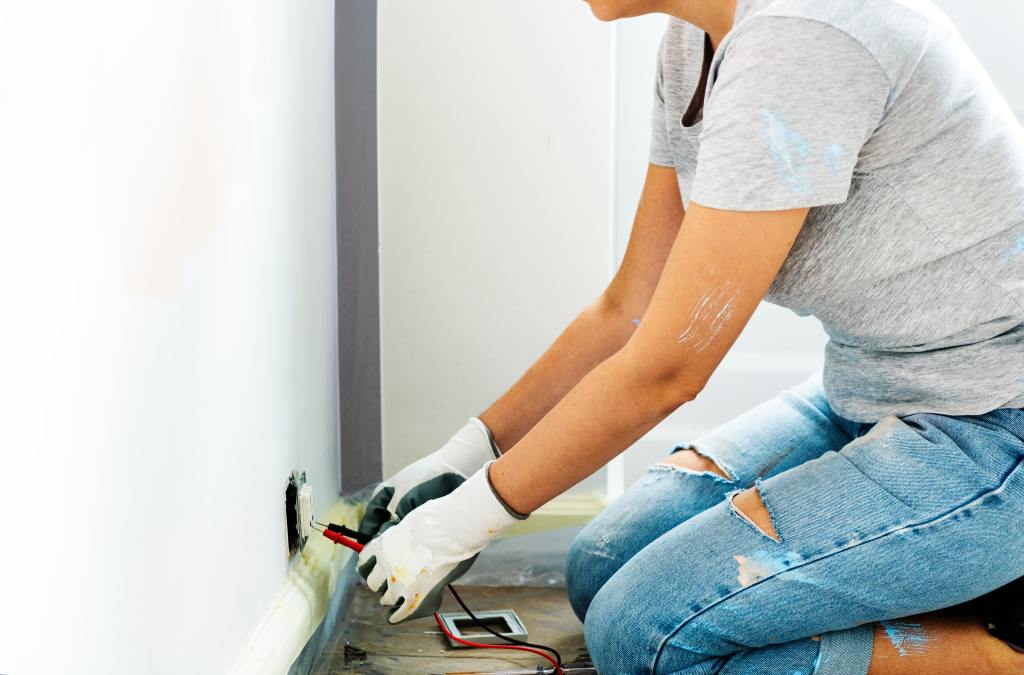As a dedicated parent, you strive to provide the safest environment possible for your family. Among countless factors you need to consider, electrical safety at home is undoubtedly a priority. This article presents easy-to-understand tips and precautions you should take to ensure the safety of your children and the rest of your family from potential electrical hazards.

Understanding Basic Electricity
Firstly, having a fundamental understanding of electricity can be helpful in identifying potential risks. You should know that electricity always seeks the easiest route to the ground and it’s your duty to ensure this isn’t through a family member! Knowing about currents and hertz may be unnecessary, but being familiar with terms like voltage, wattage, amps helps when checking appliances or planning additional power outlets at home. Remember, safe handling of electricity requires knowledge.
Recognizing Electrical Hazards
To provide a safe environment for your children, it’s essential that you learn to recognize potential electrical hazards. Many hidden dangers can lurk within sockets, extension cords or even light bulbs. Potential risks include old or damaged wiring, overload of sockets or extension cords, and inappropriate use of indoor electrical equipment outdoors.
Safe Use of Appliances
Any nook and cranny of your home can house an appliance exuding latent electrical threats if not restrained appropriately. Nurture the routine of disconnecting devices when idle, firmly establishing a barrier between them and aquatic environments like sinks or tubs, and maintaining dry hands during their operation. Further fortify the safety of your home by ensuring that inquisitive young minds are kept from straying towards enticing yet perilous appliances such as irons or hair dryers.
Child-Proofing Electrical Outlets
One optimal approach in ensuring safety for younger family members is child-proofing all accessible electrical outlets. You can find various types of outlet protectors available on the market designed precisely to minimize incidents involving small curious hands.
Emergency Preparedness and Response
Regardless of how many preventative measures are taken, it’s crucial for you to know what actions should be taken during an emergency scenario like electric shocks or fires due to short circuits. Ensure firefighting equipment such as fire extinguishers and sand buckets are readily accessible. Especially train yourself on handling electric shock emergencies without further endangering oneself.
Home Electrical Maintenance Tips
Regularly check your electrical installations’ condition like wall outlets, switches and circuit breakers for any early signs of wear and tear. Furthermore, look for a level 2 electrician for comprehensive inspection at least once a year which will encompass tasks that extend beyond regular maintenance checks.
Handling Minor Electrical Repairs
Even though most electrical repairs need professional assistance due to safety reasons, there may be instances where some minor problems arise like flipping off tripped circuit breakers or changing light bulbs where certain precautions have to be followed.
Shielding From Electromagnetic Fields
Electromagnetic fields (EMF) emitted by electronic devices might impact our health in long term although research is still ongoing on this matter. To reduce exposure, keep electronic devices at a distance whenever possible and encourage less screen time among younger ones.
Optimal Lighting for Safety
Even though you’ve covered all aspects mentioned above, don’t overlook proper lighting both inside and outdoors which ensures good visibility thus avoiding accidents due to limited vision during nights or low-light conditions. To attain this degree of safety, it’s critical to answer the issue of “what power supply do I need.” The power supply you pick is critical in supplying constant and dependable electricity to your lighting systems.
Creating an Electrical Safety Checklist
To ensure none of these commonly overlooked aspects are ignored over time, maintain an electrical safety checklist pinned on your fridge where quick regular checks can be routinely made thereby ensuring safety throughout the house consistently.
Electrical DIY Tips
For DIY electrical work, always prioritize safety. De-energize power sources before starting any project, even minor ones to eliminate accidental electrocution threats. Use insulated tools to prevent electricity flow through the metal tool. Replacing damaged or worn-out electrical products immediately is also critical; whether they’re wires or appliances, their impairment could pose a substantial risk. These simple tips can significantly enhance safety during home electrical tasks.
Choosing Quality Electrical Products
Next on your list should be investing in quality electrical products. Good-quality electrical components are designed with safety features and are often more resilient against wear and tear. While they might cost more upfront, their long lifespan and greater safety offer peace of mind that is worth every penny.
Electrical Safety Education for Children
Finally, initiating early education about the possible perils of electricity for your children is crucial. Enlighten them with an easy-to-understand language about the safe practices and precautions around electronics and appliances. Consistently underline these guidelines so they become an integral part of their behavior and daily routines.
In Conclusion
Your role as a responsible parent involves providing protection against all forms of danger including electricity related mishaps around your household especially where young ones are involved who require extra efforts in ensuring safety due to their inherent curiosity and limited understanding about such potentially harmful elements.

Leave A Comment